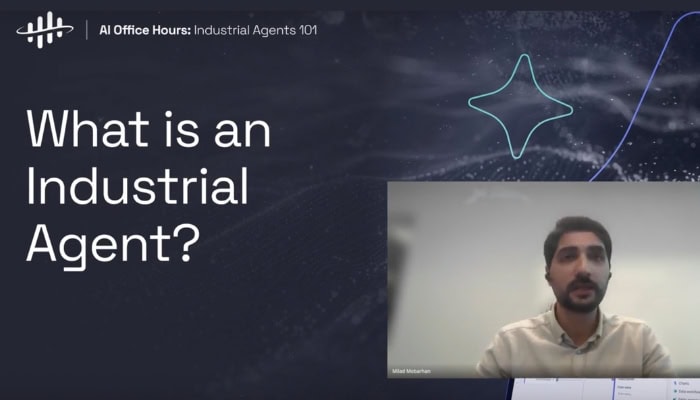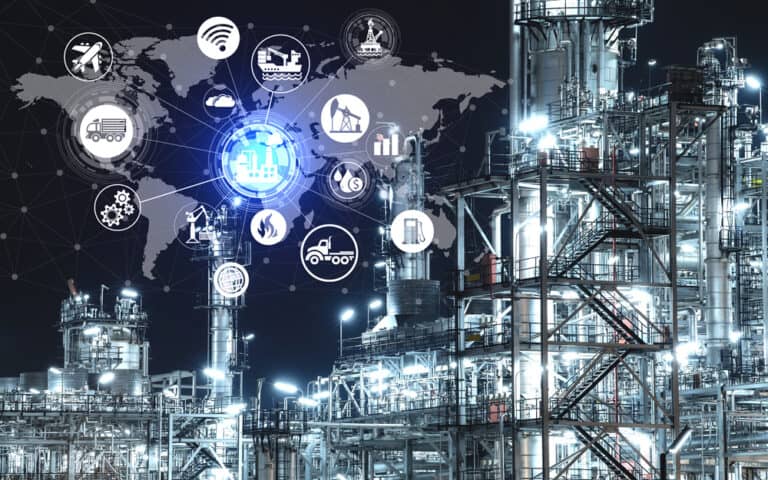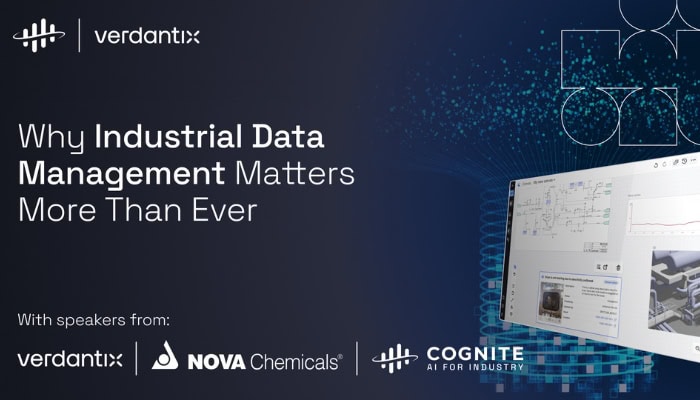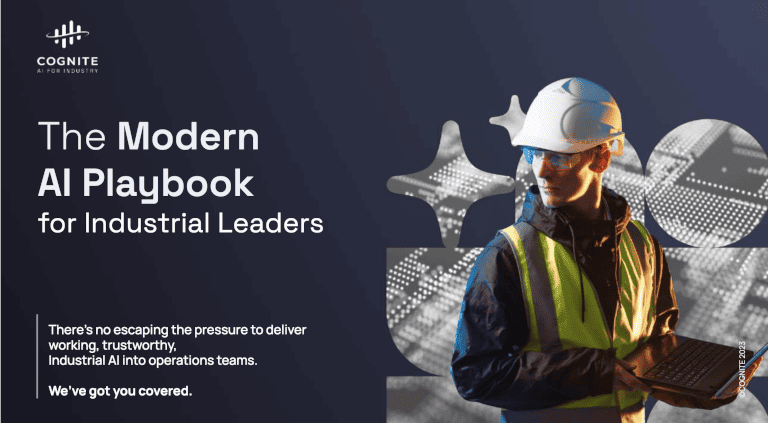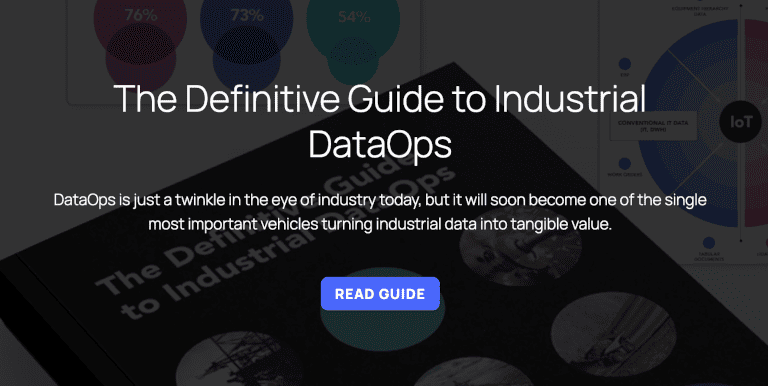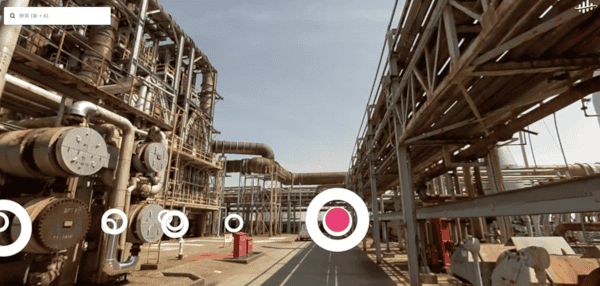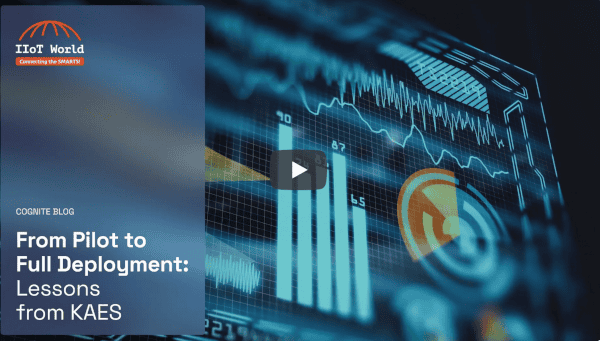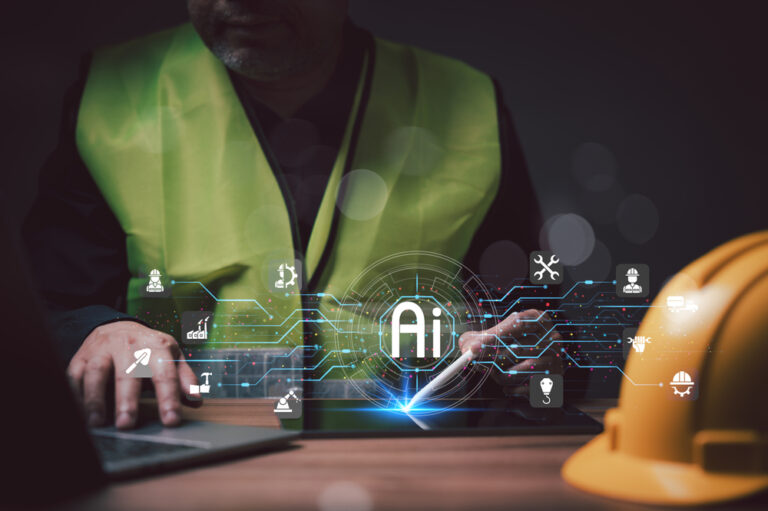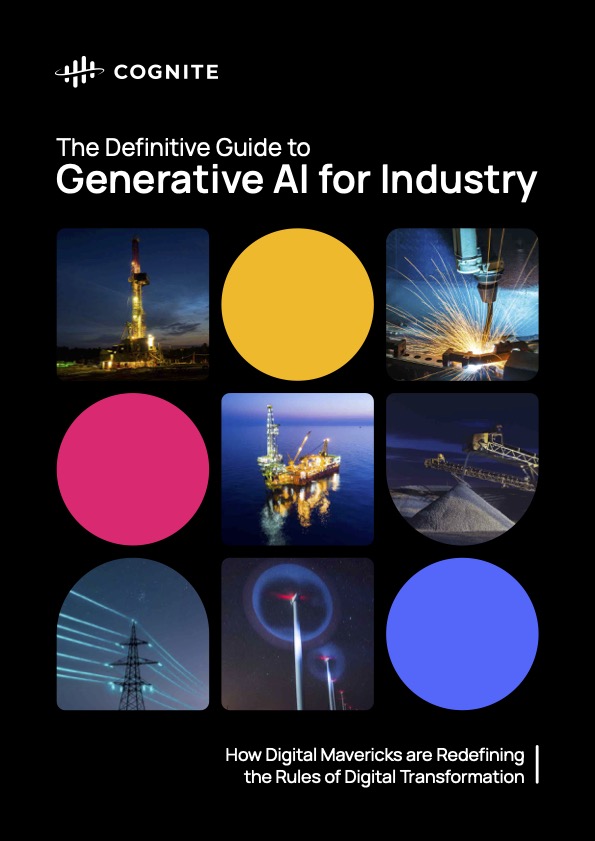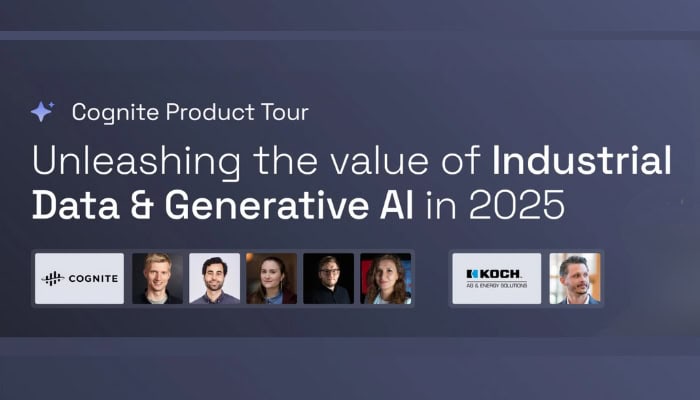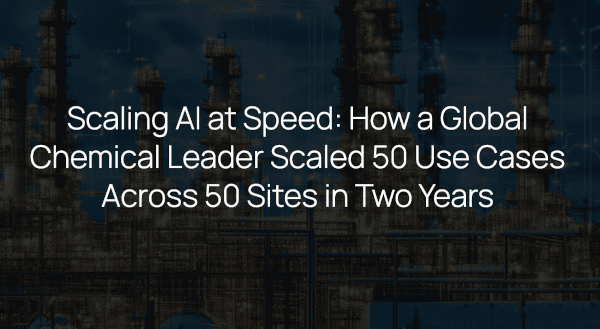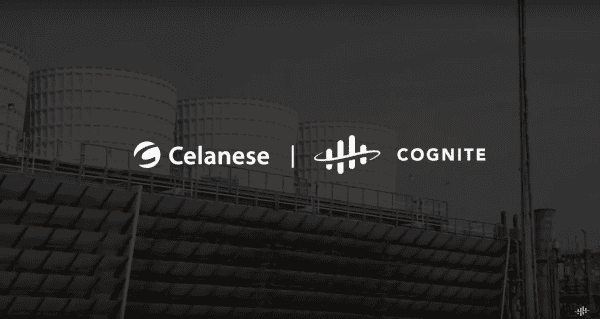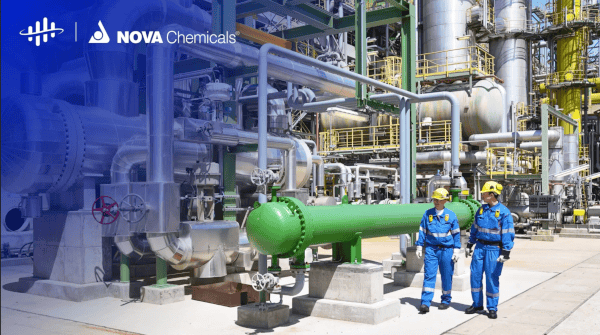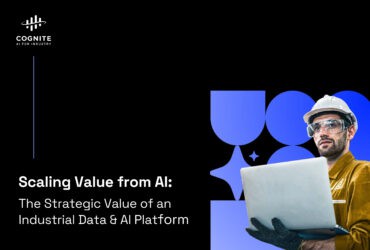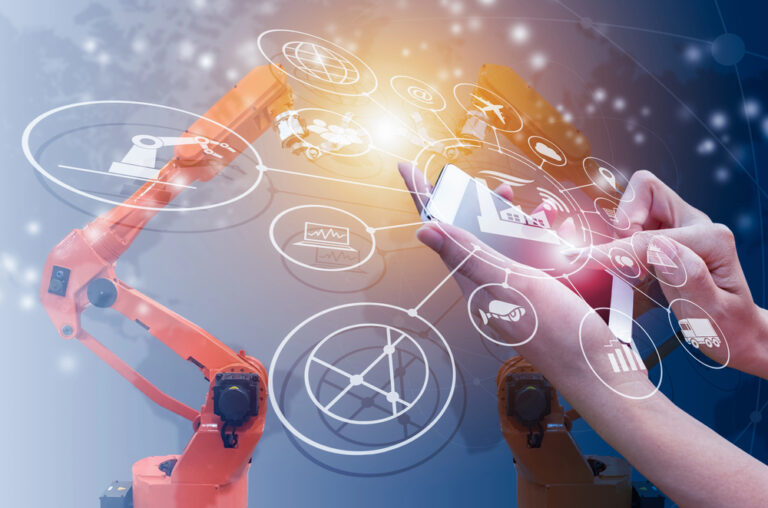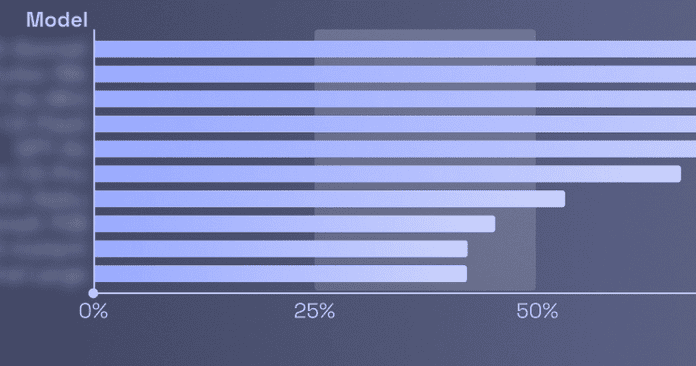To unlock the full potential of AI, businesses must move beyond ad hoc implementations and establish a comprehensive, organization-wide AI strategy. Learn More
The Industrial AI Journey
Why Is It So Hard to Trust Industrial Data? And What Can Be Done About It?
A discussion on the importance of having trust in industrial data, the challenges that have prevented past technologies from working, and how Generative AI helps.
Verdantix Report: Industrial Data Management Solutions Landscape
If you’re evaluating IDM solutions, Verdantix’s latest Green Quandrant report is key for understanding where the market is heading and how leading platforms stack up.
Why Industrial Data Management Matters more than ever
Join Verdantix, Nova Chemicals, and Cognite in this webinar that focuses on industrial data readiness. Topics discussed include the landscape of industrial data management vendors and what operators should look for when evaluating solutions, how Nova Chem uses Cognite, where industrial data management fits into AI and more.
The Modern AI Playbook for Industrial Leaders (Gated Asset)
The pressure to integrate reliable, Industrial AI into operations teams is immense. With so many software, vendor, and technology options, CDOs face the difficult task of selecting solutions that align with their organizations culture and goals. This eBook delves into three key pillars that AI-powered operations depend on.
How and Where to Start with AI for Industry
Industrial operators are increasingly looking to AI, and specifically, AI agent technology, to help make more efficient use of available data and to automate industrial workflows.
The Definitive Guide to Industrial DataOps
DataOps is just a twinkle in the eye of industry today, but it will soon become one of the single most important vehicles turning industrial data into tangible value.
How Cosmo Oil built a “digital twin of the refinery,” consolidating three facilities into one virtual space
Learn how Cosmo Oil launched a “digital twin of the refinery” using Cognite Data Fusion, Cognite’s Industrial DataOps platform, to enhance efficiency in maintenance operations and increase the productivity of their domain experts across each site.
Koch Ag & Energy Solutions (KAES) Transforms their Operations with Rapid Deployment and Data-Driven Insights
Cognite enabled KAES to rapidly unify and contextualize data with Cognite Data Fusion, driving predictive operations, faster deployments, and improved efficiency.
5 Real Ways AI is Transforming Day-to-Day Industrial Operations
A look at five ways AI agents are being used to enhance efficiency, safety, reliability, and cost-effectiveness of industrial operations.
Definitive Guide to Generative AI for Industry
As its reach and influence expand, AI is transitioning from a supplemental technology to a core component of modern industrial operations. Learn how to turn generative AI into your organization’s secret weapon in this comprehensive guide.
Unleash the Value of Industrial Data & AI
As industrial organizations embrace generative AI technologies, they quickly discover that applying data and AI effectively can be complex and challenging. How can operators overcome this in 2025? Hear from Koch Ag & Energy Solutions, Idemitsu Kosan Inc, Skagerak Energi, and more in Cognite’s Product Tour.
Scaling AI at Speed: How a Global Chemical Leader Scaled 50 Use Cases Across 50 Sites in Two Years
Learn how a global chemical and specialty materials company scaled AI-driven operational improvements across its worldwide operations using Cognite’s industrial data and AI software.
Celanese powers its “Digital Plants of the Future” with Cognite Data Fusion®
Legacy data stacks stall digital acceleration. Celanese, a global chemical and specialty materials company, is leveraging Cognite Data Fusion to build an integrated manufacturing portal that serves as a single repository for all its domain experts.
NOVA Chemicals Scales data-driven solutions with Cognite Data Fusion®
NOVA Chemicals is improving maintenance routines by unifying fragmented legacy systems, reducing the time required to access information from hours to minutes, and exploring AI for certain task automation with Cognite technology.
The Strategic Value of an Industrial Data & AI Platform
Deep dive into the value of establishing an Industrial Data and AI platform and its critical role in enabling AI at scale to drive production uptime, operational efficiency, and subject matter expert productivity.
What are AI Agents and How Are They Used in Different Industries?
AI agents are not just a future possibility—they are a present necessity, capable of driving efficiency, innovation, and growth in today’s competitive industrial environment.
Demystifying Industrial AI Agents, What We Can Learn from Iron Man
Industrial agents perform specific tasks in a human-like manner when trained with the right data and when using the right AI model and capabilities. Here’s a look at some of the types of industrial agents that are already being used now or in the near future on Cognite.com.
AI Agents 101 Videos
Join Cognite experts for a comprehensive 4-part webinar series that provides a 101-level guide to industrial AI, covering what your organization needs in order to build and deliver secure, reliable agents for industrial workflows and further enable simple access to complex industrial data.
Cognite Atlas AI™ SLM & LLM Benchmark Report
Industrial agents are helping deliver smarter, safer, more productive operations, but concerns still exist about accuracy and effectiveness. That’s why Cognite created the industry’s first language model performance report to identify which language model you should use for specific industrial tasks.
The Definitive Guide to Industrial Agents (Gated Asset)
Learn everything you need to know for making Generative AI work for your industrial environment in this comprehensive guide, with a new addition; the role of industrial agents in accelerating business value.
Resources
The Modern AI Playbook for Industrial Leaders (Gated Asset)
The pressure to integrate reliable, Industrial AI into operations teams is immense. With so many software, vendor, and technology options, CDOs face the difficult task of selecting solutions that align with their organizations culture and goals. This eBook delves into three key pillars that AI-powered operations depend on.
The Definitive Guide to Industrial DataOps
DataOps is just a twinkle in the eye of industry today, but it will soon become one of the single most important vehicles turning industrial data into tangible value.
Definitive Guide to Generative AI for Industry
As its reach and influence expand, AI is transitioning from a supplemental technology to a core component of modern industrial operations. Learn how to turn generative AI into your organization’s secret weapon in this comprehensive guide.
The Definitive Guide to Industrial Agents (Gated Asset)
Learn everything you need to know for making Generative AI work for your industrial environment in this comprehensive guide, with a new addition; the role of industrial agents in accelerating business value.
Cognite Atlas AI™ SLM & LLM Benchmark Report
Industrial agents are helping deliver smarter, safer, more productive operations, but concerns still exist about accuracy and effectiveness. That’s why Cognite created the industry’s first language model performance report to identify which language model you should use for specific industrial tasks.
The Economic Impact of AI Agents in Industrial Operations
AI agents are poised to become a foundational element of industrial operations, offering enhanced productivity, agility, and sustainability.
The Strategic Value of an Industrial Data & AI Platform
Deep dive into the value of establishing an Industrial Data and AI platform and its critical role in enabling AI at scale to drive production uptime, operational efficiency, and subject matter expert productivity.







